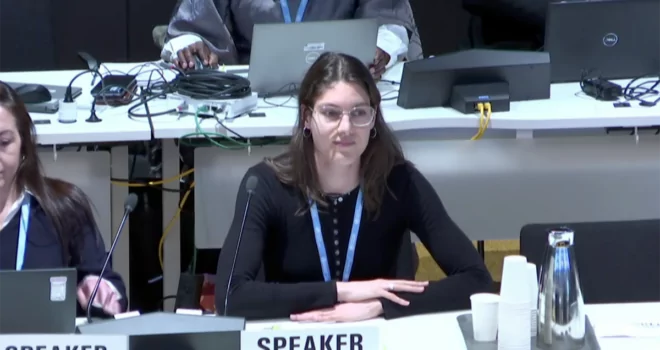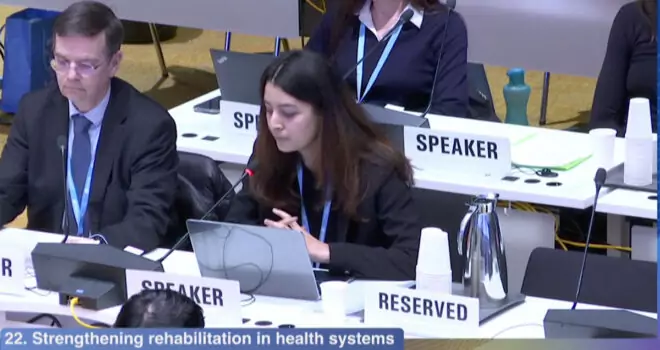This is a statement led by NCD Alliance and the World Heart Federation at the 77 World Health Assembly on Agenda item 17
Distinguished delegates,
We welcome the progress made in refining the draft GPW 14, particularly the inclusion of additional outcome indicators for strengthening health systems for UHC; tackling health determinants and risk factors for NCDs; promoting equitable access to quality NCD services; and improving health financing while reducing out-of-pocket payments.
However, we regret the missed opportunity to ensure comprehensive outcome indicators for NCDs. NCDs cause 41 million deaths annually, representing 74% of global mortality, and the absence of NCD indicators hinders prioritization for achieving agreed targets.
We fear that NCDs are not adequately represented among the 19 tracer indicators contained in the Access to Health Products Index, and therefore do not reflect the global disease burden.
While not explicitly mentioned in GPW 14, we wish to emphasize the importance of a robust framework of national NCD-specific indicators to help inform policies and investments, which will complement the GPW 14 results framework. These frameworks should include date on the burden of NCDs, service coverage (including access to essential medicines, technologies, and diagnostics across all level of the health system), catastrophic health spending, and overall investment in NCD services.
Furthermore, we call for the meaningful involvement of people living with NCDs, including mental health and neurological conditions, of all ages in implementing and evaluating the GPW 14. This will support WHO guidance to Member States on how to ensure that health policies and services are responsive to community needs and inclusive, with a particular focus on marginalized and vulnerable populations.
Finally, we urge Member States to pledge full, sustainable, and predictable financing for WHO’s budget for 2025-28, with flexible funding to ensure sufficient resources for NCD programmes. Currently, only 5% of WHO’s budget goes to prevention and control of NCDs. More flexible funding would enable WHO to adapt to emerging needs, implement innovative solutions, allocate resources efficiently, and support more comprehensive approaches to care that better address NCDs.
Thank you.


